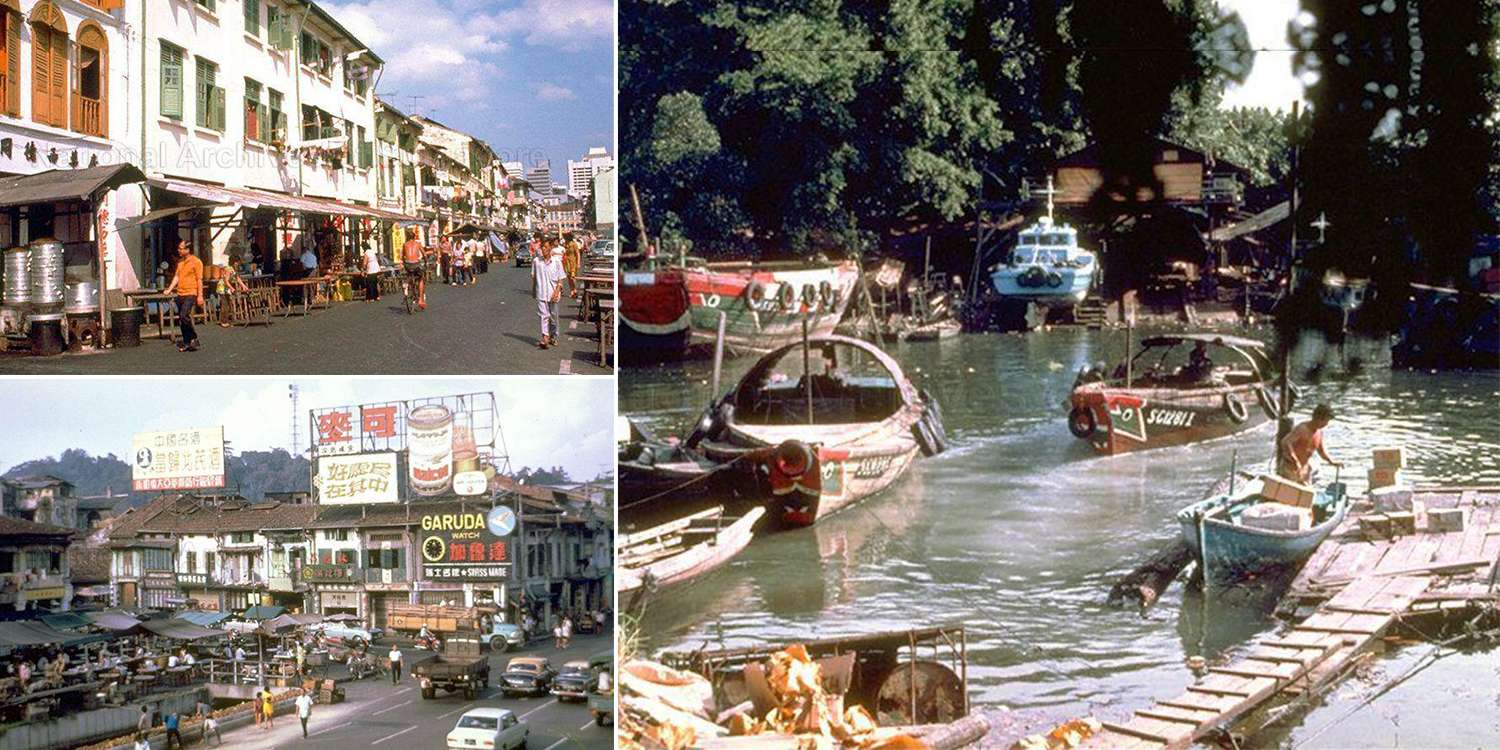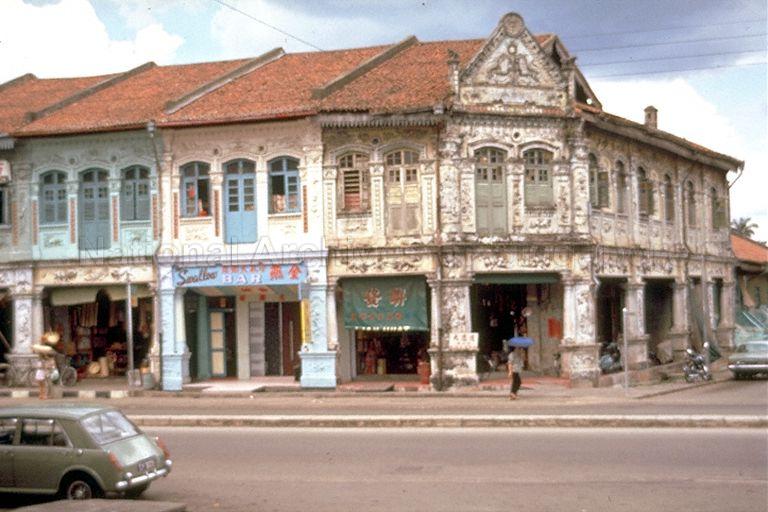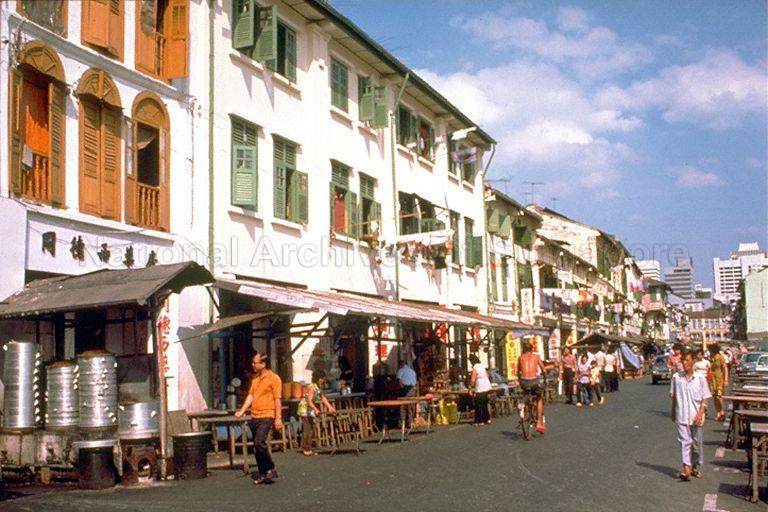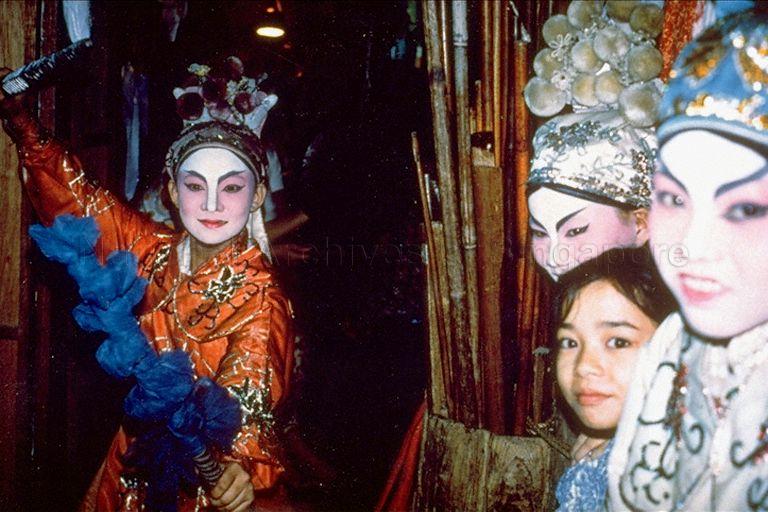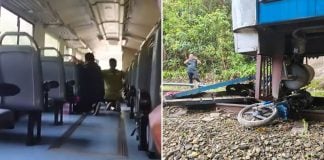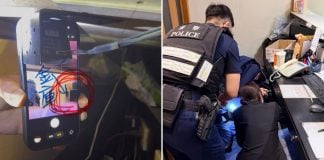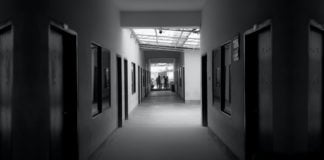Paul Piollet Donates 182 Lost Pictures To National Archives Of Singapore
Now every netizen loves a good CSI opportunity.
If you’re eagle-eyed and have a photographic memory, your assistance is sorely needed in this meaningful endeavour.
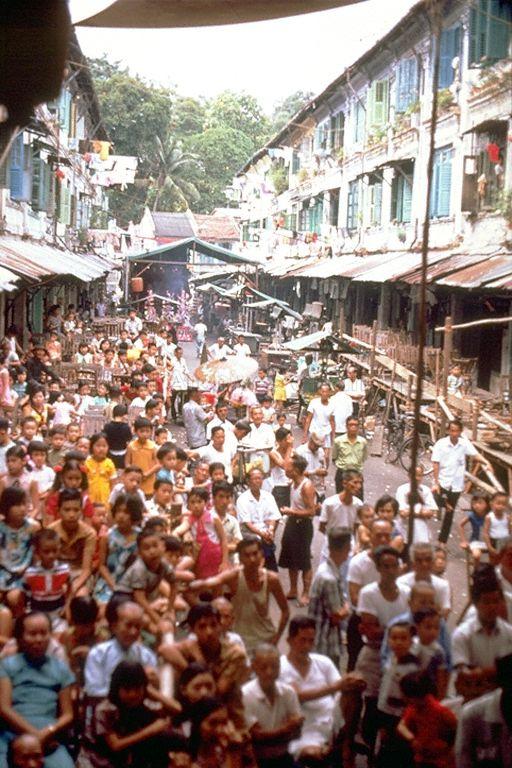
Chin Nam Street Opera (21 Nov 1971)
French photographer and author Paul Piollet has captured many unseen snippets of Singapore in the 1970s-80s on film. In a generous gesture, he’s donated 182 pictures from his personal collection to the National Archives of Singapore (NAS) for preservation online.
However, the full records are unavailable for every picture — the authorities and Mr Piollet aren’t sure where exactly they were taken.
Thus, help is required to identify these places so they’ll no longer remain lost in the annals of Singapore’s rich history.

Rochor River, Crawford Street, Dated 21 Feb 1982
Here’s a quick look at some fascinating pictures from his collection hosted on NAS’ website.
1. New Bridge Road Hawker Centre
This picture depicts a hawker centre in front of Thong Chai Medical Institution.
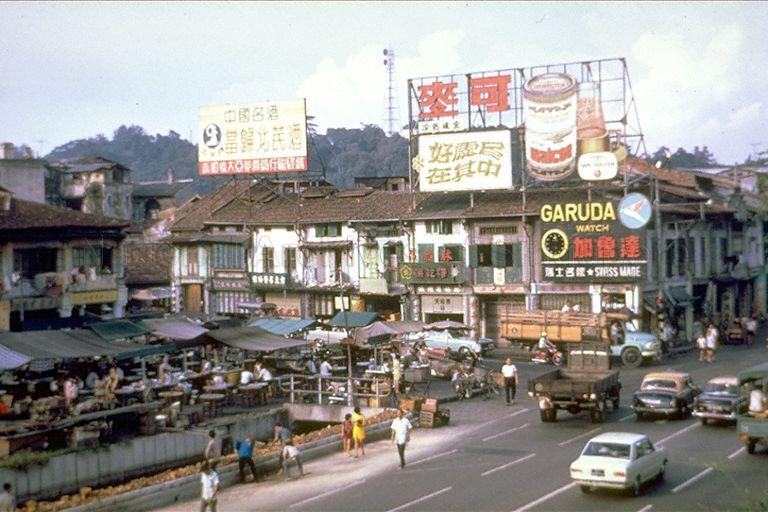
Dated 5 Dec 1970
The rustic tentages and old-school cars will surely bring back fond memories.
Identify this place here.
2. Old Orchard Road
Before Orchard Road played host to their iconic Christmas light-up, you would have encountered a quaint row of shophouses if you were headed in that direction.
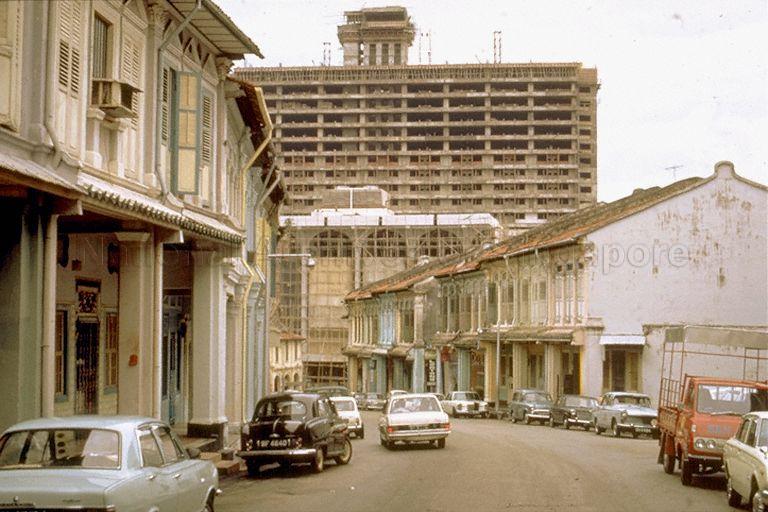
Dated 22 Aug 1971
According to NAS’ profile, that’s the Specialists’ Centre under construction in the background.
Identify this place here.
3. Random coffee shop
Little is known about this nondescript coffee shop, but we’re sure the kopi was legit.
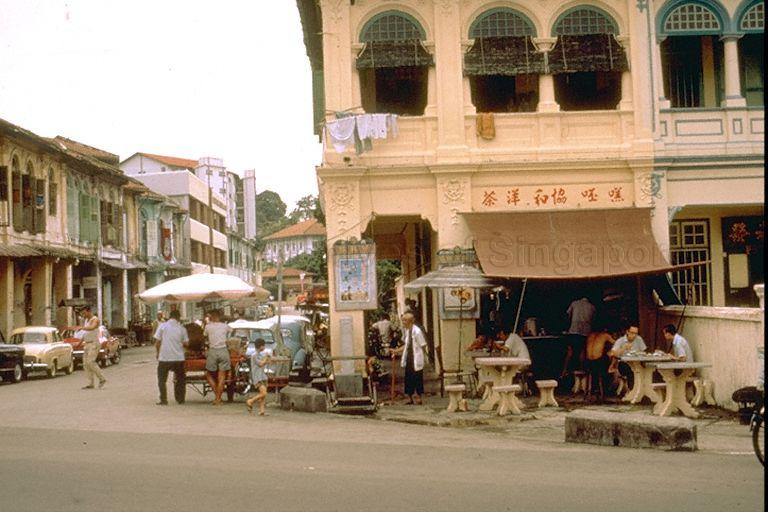
Dated 22 Aug 1971
Identify this place here.
4. North Boat Quay
Imagine a bustling jetty crammed with tiny tugboats, and now picture this exact scene along Boat Quay today.

Dated 8 Nov 1972
We’d like to draw your attention to the uneven terrace houses in along the jetty as well, the organic architecture is a far cry from the manicured landscapes we’re used to now.
Identify this place here.
5. Row of Peranakan Houses
Here’s a row of Peranakan houses along Norfolk Road.
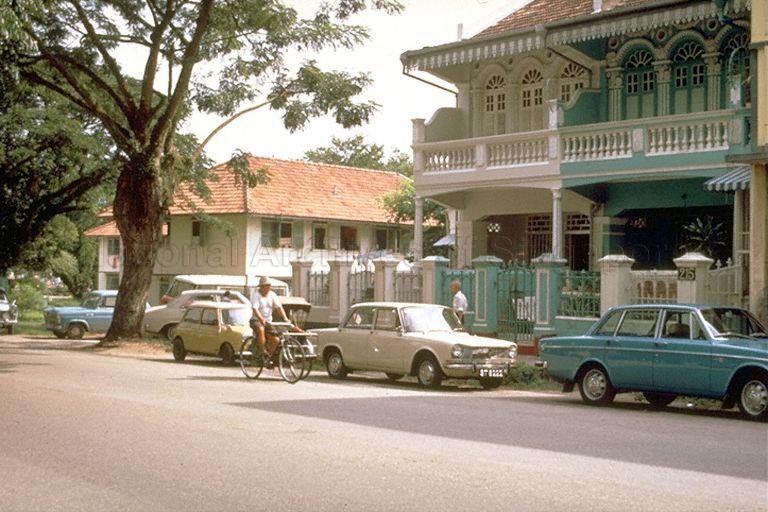
Dated 15 Dec 1971
The red building on the left is named Tasek Utara estate, and it was built by HDB’s predecessor, the Singapore Improvement Trust (SIT), during the 1950s by the colonial government.
Identify this place here.
6. Rustic old provision shop
Rusty biscuit tins and rattan baskets are a surefire way to identify a provision shop.
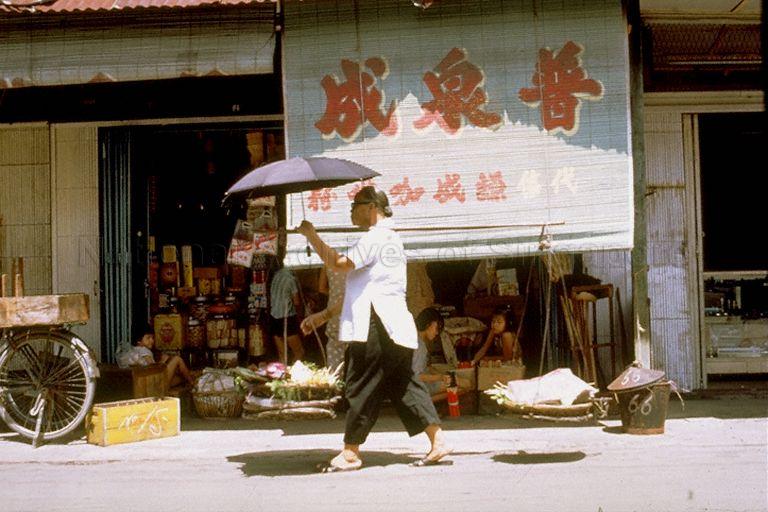
Dated 20 Aug 1971
However, nothing more is currently known about this location.
Identify this place here.
7. Hidden corner at Rangoon Road
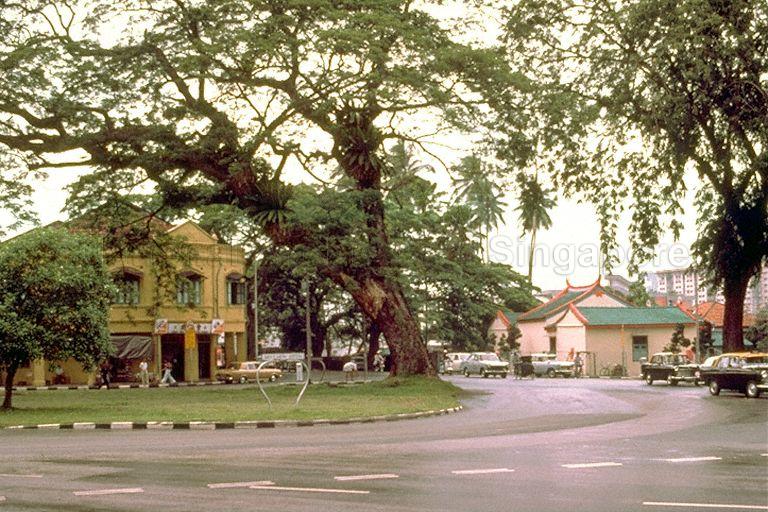
Dated 16 Oct 1975
The junction where Rangoon Road meets Norfolk Road and Moulmein Green holds a special place in Mr Piollet’s heart. But the temple like structure on the right could use some CSI work.
Identify this place here.
8. Street hawkers in the 80s
Piollet’s description adds that after the 1980s, street hawkers no longer plied the streets after measures were taken to set up official hawker centres.
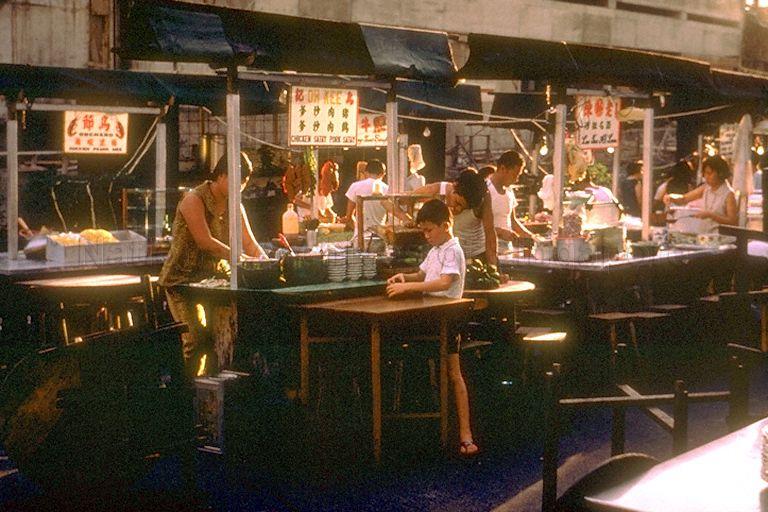
Dated 1971
Identify this place here.
9. Junction at Cross Street
The familiar sight of clothes hanging out to dry on poles hasn’t changed much compared to our HDB estates.
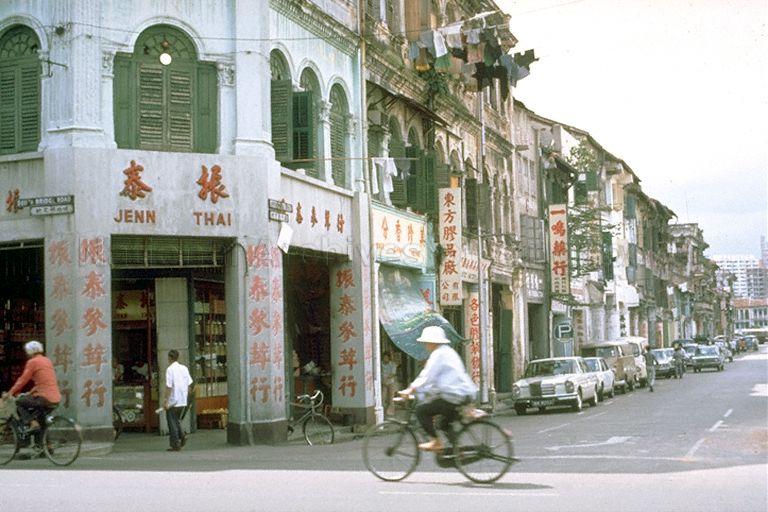
Dated 18 Dec 1971
However, everything else about this street is different now, besides the fact that this was identified as an intersection between South Bridge Road and Cross Street.
A living record of Singapore
Mr Piollet’s main occupation in the oil industry gave him many opportunities to travel in the region — his journeys took him everywhere from Kalimantan, Indonesia to the lively streets of Singapore in the 70s.
This collection of photos is particularly precious as they are a living record of “Singapore in transition”, as The Long And Winding Road put it.
From Chinese opera sets, to early hawkers and funerals, Mr Piollet would painstakingly document his sketches and photographs by hand.
Some CSI required
In sharing these pictures, the 80-year-old simply hopes that his archives will help younger Singaporeans get in touch with their roots.
If you recognise any of the images within the collection, do contact the NAS via the feedback form onsite.
By harnessing the combined CSI-efforts of the Internet, we’re sure these pictures will be archived successfully in no time.
You’ll also love:
34 Years Of Orchard Road Christmas Lights In 15 Nostalgic Pictures
Featured image from Paul Piollet via National Archives of Singapore.
